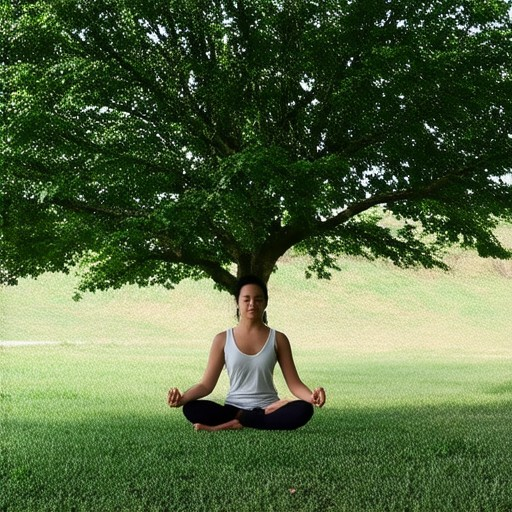Building self-worth is a journey that many individuals struggle with in today’s fast-paced world, where demands often outweigh our ability to keep pace. While societal pressures and personal challenges can erode our sense of worth, mindfulness offers a powerful antidote. By cultivating mindfulness, we can shift our perspectives, foster resilience, and learn to embrace our inherent value. This article delves into how mindfulness meditation, exercises, and practices can serve as transformative tools for building self-worth, exploring its benefits for individuals of all ages, including children, teens, and adults alike. From understanding the best therapy for self-worth to discovering effective mindfulness techniques, this guide provides insights and resources to help you thrive. Whether you’re seeking to improve your self-esteem or simply desire a deeper connection with yourself, mindfulness stands as a gateway to building a stronger, more confident you.
Key Takeaways
– Cultivate Emotional Resilience: Mindfulness enhances your ability to manage stress and embrace life’s challenges, fostering confidence and self-worth.
– Practice Self-Compassion: Develop a kinder inner dialogue and create a supportive internal environment, healing past wounds and building a positive self-image.
– Sharpen Cognitive Function: Improve thought clarity and reduce overthinking, aligning your decisions with your true desires and goals.
– Incorporate Mindfulness Daily: Start small with meditation or gratitude practices, and engage in acts of kindness to strengthen self-compassion and positivity.
– Enhance Relationships: Build empathy and deepen connections, reducing isolation and supporting your sense of self-worth.
– Overcome Fear and Doubt: Face challenges with mindfulness, staying grounded and focused on your goals while adapting gracefully to change.

How to Develop a Sense of Self-Worth
Building a strong sense of self-worth is essential for personal growth and happiness. It involves understanding your worth, embracing your strengths, and learning to love yourself unconditionally. Here’s how you can cultivate self-worth:
1. Practice Self-Compassion
Be kind to yourself during tough times. Treat yourself with the same compassion you would offer a friend. Acknowledge your mistakes without judgment and remind yourself that everyone has imperfections.
2. Set Personal Goals
Define meaningful objectives that align with your passions and values. Celebrate progress, no matter how small, and learn from setbacks. This helps you recognize your capabilities and resilience.
3. Cultivate Gratitude
Focus on the positive aspects of your life. Keep a gratitude journal to document things you’re thankful for, which helps shift your mindset towards positivity and self-appreciation.
4. Engage in Activities You Enjoy
Spend time doing things that bring you joy and fulfillment. Whether it’s hobbies, creative projects, or relaxing activities, pursuing your interests strengthens your sense of purpose and self-worth.
5. Surround Yourself with Positive Influences
Seek support from friends, family, or communities that uplift and inspire you. Avoid negative influences that may undermine your confidence or self-esteem.
6. Learn from Others’ Success Stories
Study individuals who inspire you and see how they developed their sense of self-worth. Their journeys often involve perseverance, vulnerability, and a commitment to growth.
7. Challenge Negative Thoughts
When you notice negative thoughts about yourself, consciously reframe them. Replace self-critical statements with affirmations that highlight your strengths and potential.
8. Take Care of Your Physical Health
Adequate sleep, regular exercise, and a balanced diet contribute to both physical and mental well-being, which positively impacts your sense of self-worth.
9. Reflect on Your Achievements
Regularly revisit your accomplishments, no matter how small. This practice helps you recognize your progress and reinforces your belief in your abilities.
10. Seek Professional Guidance
If self-doubt or low self-worth is significant, consider working with a therapist or counselor who can provide tailored strategies and support.
Remember, self-worth is not something you’re born with—it’s cultivated through consistent effort and self-awareness. By focusing on these practices, you can build a strong foundation of self-worth that empowers you to live a fulfilling life.
Best Therapy for Self-Worth
Building self-worth requires addressing the root causes of low self-esteem and fostering a positive relationship with oneself. Here are some effective therapies and approaches:
- Cognitive Behavioral Therapy (CBT) : This therapy focuses on identifying and changing negative thought patterns that contribute to low self-worth. By challenging irrational beliefs and replacing them with positive ones, individuals can develop a healthier sense of self-value.
- Acceptance and Commitment Therapy (ACT) : ACT helps individuals accept their imperfections and focus on their values and goals. This process fosters self-compassion and increases self-worth by emphasizing what truly matters to them.
- Mindfulness-Based Stress Reduction (MBSR) : MBSR teaches mindfulness practices that promote self-awareness and reduce stress. By cultivating compassion and kindness toward oneself, participants often experience improved self-worth.
- Positive Psychology : This approach focuses on identifying and amplifying strengths, fostering gratitude, and cultivating a positive outlook. It helps individuals recognize their inherent value and potential.
- Support Groups : Engaging with others who share similar challenges can provide emotional support and practical advice. It fosters a sense of belonging and validation, which are essential for building self-worth.
- Self-Compassion Therapy : This therapy focuses on developing self-compassion, replacing critical inner voices with kind and supportive ones. Over time, this shift can significantly boost self-worth.
Combining these therapies with self-care practices, such as regular exercise, mindful journaling, or spending time in nature, can further enhance the journey toward building a strong sense of self-worth.
Learn more about these therapies and related topics on Live On Blogs .

Does Meditation Help with Self-Worth?
Meditation has gained significant attention for its potential to enhance mental and emotional well-being. One of its lesser-known benefits is its positive impact on self-worth, or self-esteem. Below, we explore how meditation can contribute to fostering a greater sense of self-worth:
Reducing Stress and Anxiety
Stress and anxiety often undermine self-worth by creating a negative self-perception. Meditation helps alleviate these emotions by promoting relaxation and mindfulness. By focusing on the present moment, practitioners develop a clearer perspective on their achievements and strengths, reducing self-criticism and fostering a more balanced self-view.
Building Inner Strength
Engaging in regular meditation practice strengthens the mind-body connection, allowing individuals to better recognize their personal capabilities. This awareness enhances self-confidence and self-worth, as individuals become more attuned to their internal strengths and positive attributes.
Fostering Gratitude and Positivity
Meditation encourages a mindset of gratitude, which is closely linked to higher self-worth. By reflecting on positive aspects of life and practicing thanksgiving, individuals develop a more optimistic outlook. This positivity reinforces feelings of self-worth, as they learn to appreciate their own worth and the value they bring to others.
Improving Relationships
Healthy relationships often play a crucial role in self-worth. Meditation fosters empathy and compassion, which can enhance interactions with others. Feeling valued and appreciated by others contributes to a stronger sense of self-worth, creating a positive feedback loop.
- Mindful.org – Explore meditation techniques and their impact on mental health
- Psihotry Today – Discover research on mindfulness and self-esteem
- Healthline – Learn about meditation’s effects on mental well-being
By incorporating meditation into daily routines, individuals can cultivate a healthier relationship with themselves, leading to improved self-worth and overall life satisfaction.

How Can Mindfulness Help Build Self-Worth?
Mindfulness has emerged as a powerful tool for fostering self-worth, helping individuals cultivate a positive sense of self and overcome self-doubt. By focusing on the present moment and cultivating awareness, mindfulness practices can significantly enhance your relationship with yourself, leading to greater confidence and self-esteem.
1. Cultivating Emotional Resilience
- Understanding Self-Worth : Mindfulness helps you recognize your inherent worth, independent of external validation. By grounding yourself in the present, you learn to appreciate your strengths and qualities, rather than relying on others’ opinions.
- Reducing Negative Thoughts : Regular mindfulness practice reduces the tendency to dwell on negative thoughts or self-criticism. Over time, this fosters a kinder inner dialogue, which is essential for building self-worth.
2. Fostering Self-Compassion
- Being Kind to Yourself : One of mindfulness’ greatest gifts is its ability to instill self-compassion. By acknowledging your imperfections and treating yourself with kindness, you create a safer internal environment for self-growth.
- Healing Past Wounds : Mindfulness allows you to explore and process past experiences that may have impacted your self-worth. Through introspection, you can release old patterns and embrace a healthier sense of self.
3. Improving Cognitive Function
- Clarifying Thought Patterns : Mindfulness sharpens your cognitive abilities, allowing you to examine your thought processes more clearly. This leads to a better understanding of your values and goals, which are crucial for building self-worth.
- Reducing Overthinking : By focusing on the present, mindfulness helps you avoid getting stuck in cycles of overthinking. This mental clarity allows you to make decisions aligned with your true desires, boosting your confidence.
4. Practical Steps to Incorporate Mindfulness
- Start Small : Begin with just a few minutes of meditation or deep breathing daily. Over time, you’ll notice improvements in your mindset.
- Practice Gratitude : Keep a gratitude journal to focus on the positives in your life. This habit trains your brain to seek out and appreciate the good, reinforcing your sense of self-worth.
- Engage in Kindness Practices : Perform random acts of kindness toward yourself and others. This behavior strengthens your capacity for self-compassion and builds positive relationships, which in turn support your self-worth.
5. The Role of Mindful Relationships
- Building Empathy : Mindfulness enhances your ability to empathize with yourself and others. This skill fosters deeper connections and reduces feelings of isolation, which are often linked to low self-worth.
- Navigating Social Interactions : In social settings, mindfulness helps you remain calm and present, allowing you to navigate interactions with authenticity and confidence.
6. Overcoming Fear and Doubt
- Facing Challenges Mindfully : When faced with challenges, mindfulness helps you stay grounded and focused on your goals. This clarity reduces fear and doubt, enabling you to take proactive steps toward personal growth.
- Embracing Change : Change is inevitable, and mindfulness teaches you to adapt with grace. This adaptability strengthens your belief in your ability to handle life’s ups and downs, contributing to your overall self-worth.
By incorporating mindfulness into your daily life, you can build a strong foundation of self-worth that withstands life’s fluctuations. Remember, your worth is not defined by external circumstances but by your ability to connect with yourself in the present moment.
How Does Mindfulness Help Build Self-Worth?
Mindfulness practices contribute significantly to building self-worth by fostering emotional resilience, self-compassion, and improved relationships. Here’s how mindfulness enhances self-worth:
- Cultivating Emotional Resilience
Mindfulness teaches individuals to acknowledge and accept their emotions without judgment. This ability helps in managing stress and challenges, leading to greater self-confidence and self-worth. By understanding and accepting themselves, people can better navigate life’s ups and downs. - Fostering Self-Compassion
Practicing mindfulness encourages self-compassion, a key component of self-worth. When individuals treat themselves kindly, they develop a positive self-image and reduce self-criticism. This inner kindness fosters a sense of worthiness and emotional balance. - Improving Relationships
Mindfulness enhances interpersonal skills, helping individuals communicate more effectively and connect deeper with others. Strong relationships, in turn, provide a sense of belonging and support, further boosting self-worth. - Reducing Negative Self-Talk
Mindfulness practices like meditation help quiet negative thoughts and replace them with positive affirmations. Over time, this shift in mindset leads to a more balanced and confident self-perception. - Enhancing Present-Moment Awareness
By focusing on the present, mindfulness reduces anxiety about the past or future. This awareness allows individuals to appreciate their current state, recognizing their inherent value and potential. - Promoting Gratitude
Regular mindfulness practices encourage gratitude, shifting focus towards positive aspects of life. This habit strengthens self-worth by highlighting personal strengths and accomplishments.
To explore these benefits further, visit Live On Blogs for guided mindfulness exercises and resources. Additionally, discover how competitors like Mindful.org and Psychology Today offer complementary insights into mindfulness and self-worth.

How Can Mindfulness Help Build Self-Worth?
Mindfulness practices have been shown to significantly contribute to building self-worth, fostering a deeper connection with oneself, and enhancing overall well-being. Here’s how mindfulness can positively impact self-worth:
- Enhances Self-Awareness: Mindfulness helps individuals become more aware of their thoughts, emotions, and behaviors. By observing oneself without judgment, one gains a clearer perspective on their strengths and weaknesses, leading to a more balanced self-view.
- Builds Emotional Resilience: Mindfulness practices like meditation help cultivate emotional resilience, enabling individuals to manage stress and negative emotions more effectively. This ability reduces the impact of self-doubt and builds confidence over time.
- Reduces Self-Criticism: Regular mindfulness can diminish self-critical thoughts, replacing them with a kinder inner dialogue. This shift fosters a more positive self-image and strengthens self-worth.
- Improves Relationships: Mindfulness enhances empathy and compassion, particularly in relationships. By focusing on others’ perspectives, individuals develop deeper connections, which in turn reinforce feelings of self-worth.
- Encourages Gratitude Practice: Incorporating gratitude into daily mindfulness routines shifts focus toward positive aspects of life, cultivating a mindset that values oneself and others.
Engaging in mindfulness practices like meditation, breathing exercises, or simply taking a few moments to reflect during the day can create a foundation for building and nurturing self-worth. Over time, these habits lead to a greater sense of self-appreciation and confidence, empowering individuals to live fuller, more authentic lives.
For more insights and practical tips on mindfulness and self-worth, explore Live On Blogs , where we delve into the transformative power of mindfulness and its role in personal growth.
Additionally, discovering how mindfulness can enhance your well-being is a journey worth exploring. Visit Mindful.org for resources and guided practices designed to support your mindfulness journey.
Remember, self-worth is not something to be earned—it’s something to be cultivated through self-compassion, awareness, and connection. With mindfulness as a tool, you can nurture a healthier relationship with yourself and embrace the fullness of who you are.




0 Comments